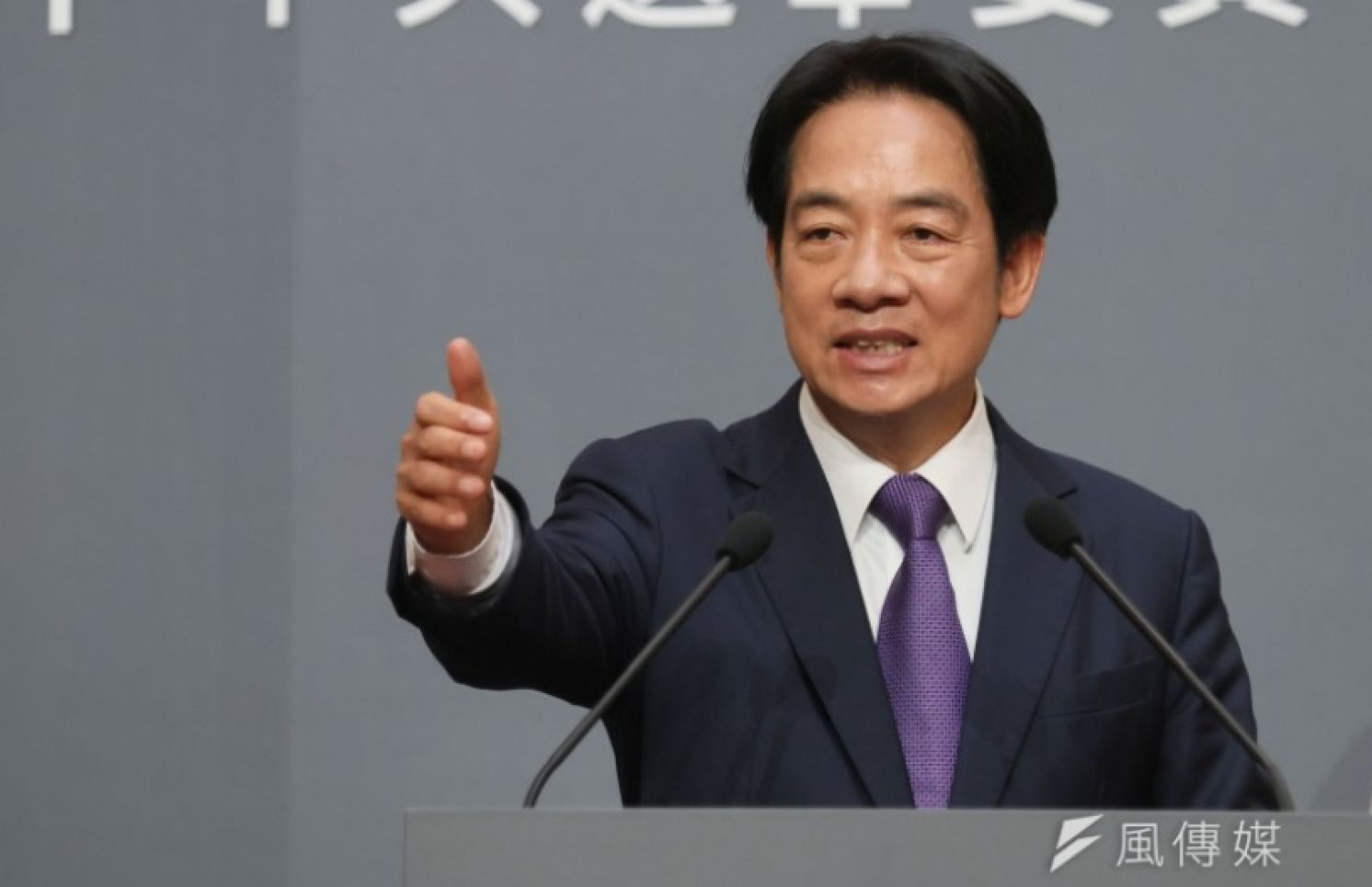
National Security Crisis Rooted Within National Security Team
China Times Editorial, September 10, 2024
Marking his first hundred days in office with a media interview, President Lai Ching-te touched upon cross-strait issues, citing the Sino-Russian Treaty of Aigun. In doing so, President Lai sarcastically criticized Beijing for not reclaiming its lost territories from Russia but instead asserting sovereignty over Taiwan. This comment sparked controversy within Taiwan and provoked a harsh rebuke from the Russian Ministry of Foreign Affairs.
The ruling Democratic Progressive Party (DPP) may feel smug about turning the tables on Beijing by referencing the Treaty of Aigun, but in reality, they've inadvertently placed themselves back into the "One China" framework that they most despise. This is because the original copy of the Treaty of Aigun is kept at the National Palace Museum in Taipei. Before being transferred to the museum, it was under the care of the Ministry of Foreign Affairs, meaning that its ownership belongs to the Republic of China government. In other words, President Lai, perhaps unknowingly, once again reaffirmed the historical continuity of the R.O.C. and its sovereign claim over all of China, including the mainland.
Such instances of President Lai’s speech backfiring are not uncommon. For example, President Lai has repeatedly stated that "Taiwan has given up on retaking the mainland" in an attempt to argue that Communist China should not invade Taiwan. However, if we look back at history, when President Lee Teng-hui’s administration abolished the "Temporary Provisions Effective During the Period of National Mobilization for Suppression of the Communist Rebellion" and enacted the "Additional Articles of the Constitution" and the "Act Governing Relations Between the People of the Taiwan Area and the Mainland Area," it was indeed a formal legal declaration of abandoning the goal of retaking the mainland. But this was predicated on peaceful competition between the mainland and Taiwan in terms of systems and ways of life, with the ultimate goal of achieving unification. Otherwise, the phrase "before national unification" would not have been included in the constitutional framework.
Sadly, in President Lai’s understanding of the world, history seems to be a "mishmash." President Lai might believe that Japan brought modernization to Taiwan and thus feels indebted to Japan, turning a blind eye to the invasions and colonial oppression. He may also think that since the U.S. has provided Taiwan with the "Six Assurances," the "One China" policy no longer matters, even though U.S. officials from American Institute in Taiwan (AIT) have explicitly reiterated it, which President Lai seems to conveniently ignore.
Indeed, unlike former presidents Ma Ying-jeou and Tsai Ing-wen, who both possess extensive experience with international affairs and cross-strait relations, President Lai primarily focused on local governance before serving as Premier. He is well-versed in city management and holds firm pro-Taiwanese beliefs, but has never been part of the core diplomatic or cross-strait decision-making circles. As a result, he is inevitably unfamiliar with the historical, legal, and geopolitical rules at the national and international levels.
This is where the importance of the national security team becomes clear. In the United States, even presidents like Ronald Reagan, George W. Bush, and Donald Trump, who were not particularly well-versed in history or diplomacy, managed to keep U.S. foreign policy running smoothly, sometimes even achieving notable successes, thanks to their strong advisory teams. However, while President Lai claims to continue former Tsai’s policies and appears to have retained some key figures from the previous administration, the unskillful remarks and actions of his national security team since taking office suggest that his supposed "respect for Tsai" is merely a facade.
Recently, after U.S. National Security Advisor Jake Sullivan's visit to Beijing, Taiwan's national security officials held a briefing with several media outlets, assessing that the Beijing regime is unstable, with tensions between the party and the military, and predicting an imminent internal crisis in China. Their reasoning was simply because Sullivan met with Vice Chairman Zhang Youxia of the Central Military Commission, rather than the Minister of National Defense Dong Jun. In comparison, after Taiwan’s presidential inauguration on May 20, other remarks made by national security personnel to the media have been similarly laughable. For example, they referred to publicly available mainland Chinese state media reports of Communist Party meetings as "national security intelligence" and even got the time of the meetings wrong. In another instance, they mistook internet rumors as intelligence, confusing People’s Liberation Army (PLA) Army Deputy Commander Deng Zhiping with "Deng Xiaoping's grandson."
If the national security staff's ability to interpret and assess intelligence is worse than that of ordinary netizens, how can we expect President Lai to receive accurate, timely, and forward-looking intelligence to make sound, nation-benefiting decisions? By the same logic, given the poor quality of the national security team, it is not a surprise that President Lai's statements on cross-strait, U.S., and international affairs often lead to embarrassing mistakes. The blame should undoubtedly fall on the advisers. Nevertheless, when a highly ideological president is paired with an amateur team, it is hard to believe that they can safeguard the country's security.
Indeed, recent reports that a mainland Chinese scholar specializing in Taiwan affairs was blocked from visiting Taiwan by the national security team have raised concerns about a lack of coordination between cross-strait decision-making bodies. This incident once again proves that Taiwan’s national security crisis does not come from any "fifth column” from China but from the most amateurish, historically ignorant, and internationally unaware national security team.
From: https://www.chinatimes.com/opinion/20240910005111-262101?chdtv